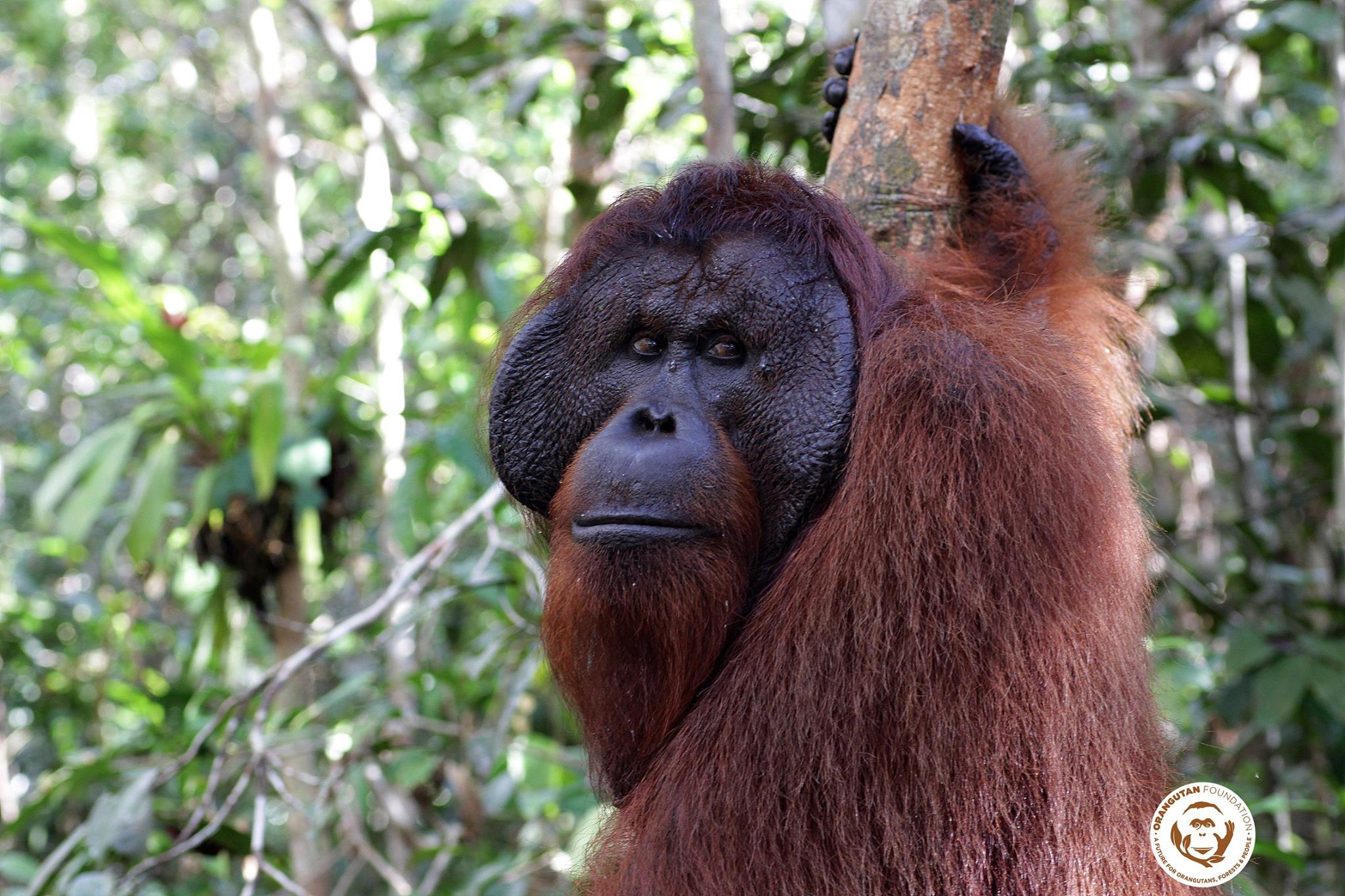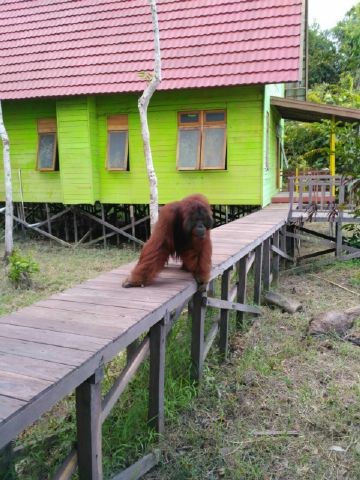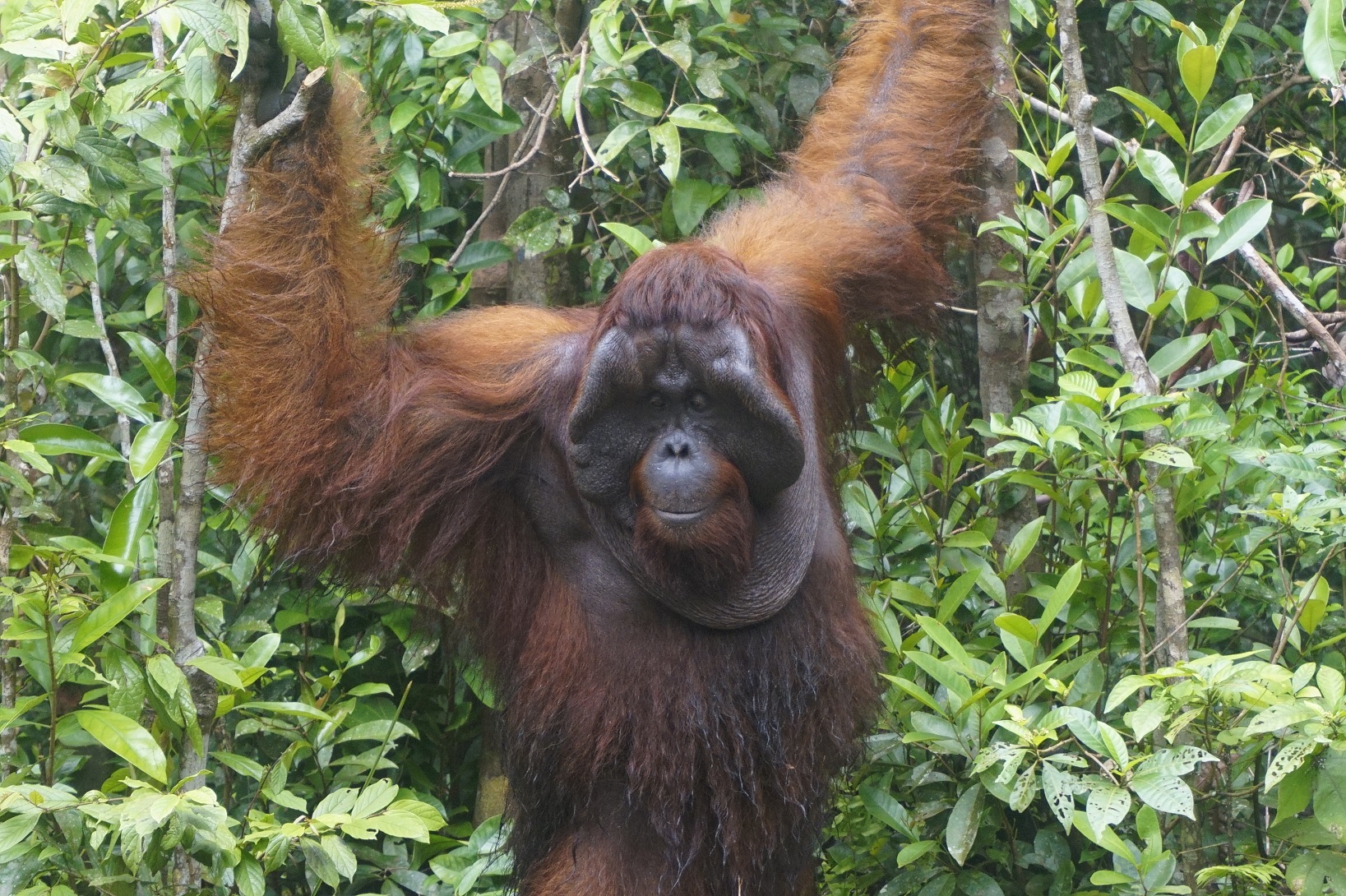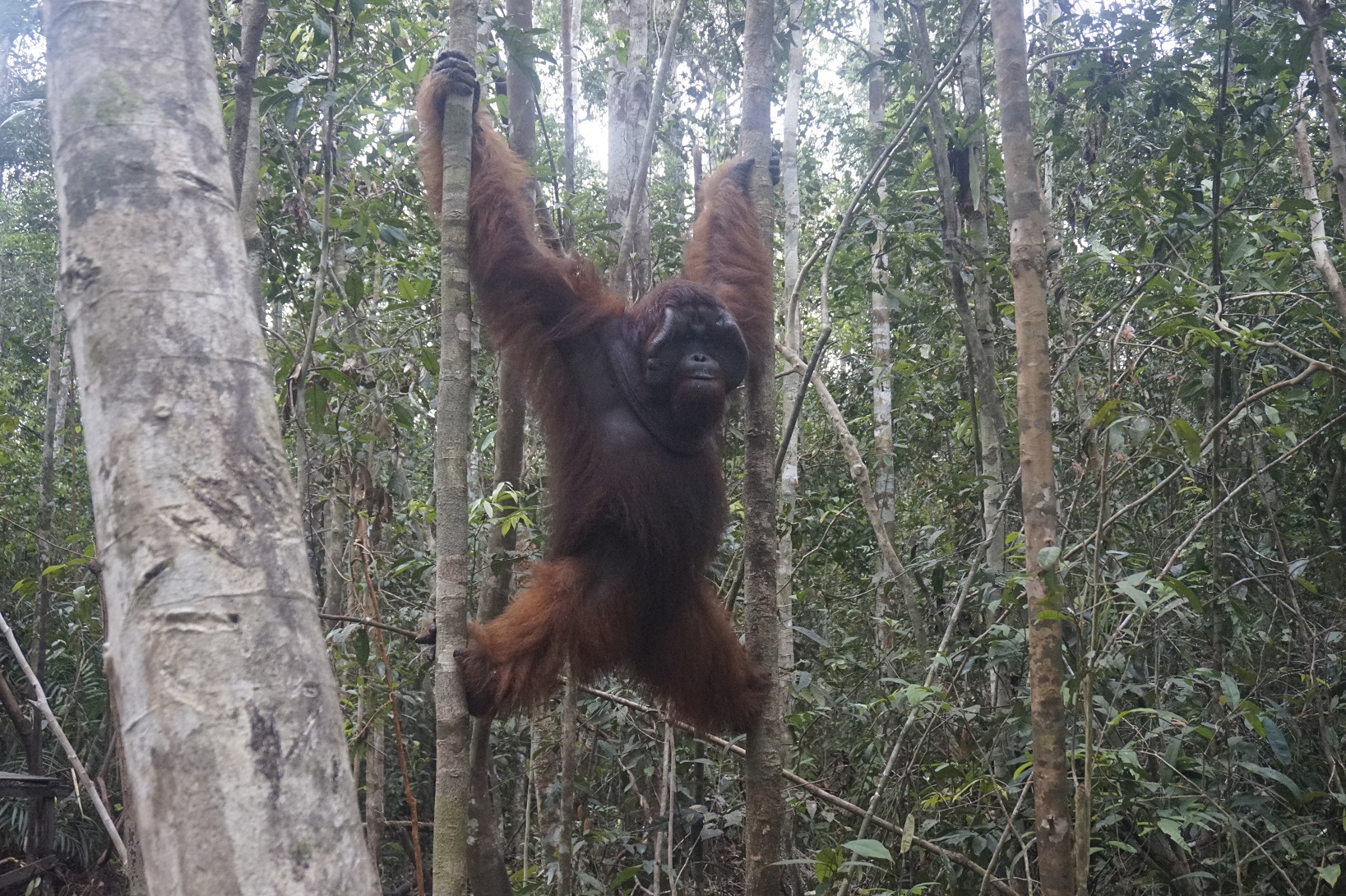Some male orangutans start to look very different from females as they reach maturity, from the age of 15 onward. They develop cheek pads and bulk out, some weighing upwards of 120kg, double the average female. In the wild, one cheek-padded male will dominate an area of forest, with other cheek-padded males moving on to an area without another adult male in the vicinity.

Staff stationed at one of our guard posts in the Lamandau Wildlife Reserve, Indonesian Borneo, have reported the arrival of an adult male in the immediate vicinity of the post. Adult male orangutans generally do not pose an immediate threat as they possess a natural wariness of humans, however, this male clearly showed no fear and so was thought to be one that had been rehabilitated into the area.

Guard post staff got in touch with staff stationed at the nearby Camp Siswoyo, who identified the male as Ofi, a male often seen in the forest surrounding the camp. Camp staff tried to encourage him to go back into the forest, as he was posing a problem to guard post staff who were unable to move about freely whilst he was close by.

The last time camp staff reported seeing Ofi was back in July this year. Ofi shares the surrounding forest with dominant male Bangkal. Ofi is afraid of Bangkal and will make a swift exit anytime they meet, which is normal behaviour for a submissive male. You can read more about Bangkal here.

Since the guard post is only 5km away from camp, it is not far for an orangutan to travel, and staff believe he has moved away from camp as he cannot compete with Bangkal. Male orangutans are not territorial and have overlapping ranges, however, they do compete for resources, such as food, and fertile females.

Staff will monitor Ofi and if the situation does not improve, he will be tranquillised and moved into a suitable area of forest away from both camp and the guard post.

It costs £200,000 a year to protect the Lamandau Wildlife Reserve, home to Ofi, Bangkal, and hundreds of other orangutans. Please click here to support our work by giving a donation. Thank you.


